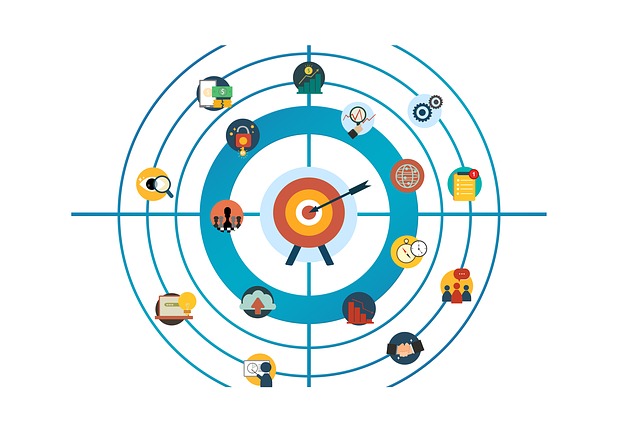Except for happiness, the two things we strive for the most are purpose and success. In our modern materialistic world, who doesn’t want to earn more money, get rich, and live a comfortable, satisfying life?
You may also seek meaning beyond earning more. You know – these questions about why you do what you do and why you are here. It’s called purpose. This popular yet ambiguous term probably brought you to this blog.
Purpose is what gives your life meaning. It drives you to get out of bed in the morning and keeps you going when things get tough. It usually takes time to find purpose, and not everyone porsues purpose, but those who do are more likely to succeed in their career, relationships, and personal life.
The kicker, though, is that your success also fuels your purpose.
While meaningful life can help you succeed, your success allows you to impact others, increasing your sense of purpose. Each goal you achieve also reinforces your faith in your purpose.
As you can tell, a symbiotic relationship exists between purpose and success. But how can you use that insight to your favor?
In this article, I’ll dive deep into this relationship and discuss how to find your purpose and use it to achieve your goals. I’ll also provide real-life examples of famous people who have succeeded by following their purpose.
So, let’s dive in and reveal how to enjoy the two worlds – living a more meaningful and successful life simultaneously!
Disclaimer : The information provided in this article is for educational purposes only, and it is not a substitue for professional advice. The article may contain affiliate links. See the full disclaimer for more details.
What defines a successful person?
Success is one of those things that means different things to different people. For some, success means financial wealth; for others, success is defined by personal fulfillment or making a difference in the world. In addition, some parents measure their success by the extent their children succeed. So, there is no straight answer to what defines a successful person.
You decide what success is for you. It could be getting a promotion and earning more, earning from your side hustle, or having nonmaterial success like establishing a meaningful relationship with your spouse.
That said, there are some common traits that many successful people share. These include:
- A strong sense of purpose is needed to establish your success. To make you wake up in the morning motivated and overcome challenges.
- Clear goals and a plan to achieve them: Successful people know what they want in life and a clear plan for how they will get there.
- Hard work and dedication: Successful people are willing to work hard without telling themselves excuses. Whether they feel good or bad, they get things done.
- Resilience: Successful people don’t let failures ruin their plans. They learn from their mistakes, adjust what they need to change and move on.
- Confident: Those who succeed in life are confident in their path and ability to succeed. Negative feedback doesn’t affect them as much as they know their value.
- Positive attitude: The ones who succeed in life have a positive attitude and outlook on life. They appreciate what they have and strive for more.
- Supportive network: Successful people are known to be surrounded by those with the same winning mindset. We are affected by the five people around us, so choosing them wisely is essential.
Of course, having these traits does not guarantee success. However, they can certainly help you on your journey to achieving your goals.
Now, let’s clarify what is “purpose” and why it’s so crucial for success.
Why is purpose necessary for success?

Having a purpose in life is highly associated with success. Several studies have shown that sense of purpose increases academic outcomes 1, income, and net worth. 2 One of the reasons for this effect is that strong sense of purpose can motivate and help you feel fulfilled. It enables you to overcome challenges at work and gives you a proportion of your daily issues at home.
When I finally discovered my purpose in my late 30s, I could tolerate the pains and the symptoms I developed during my existential crisis, and I even healed from most of them. Finding my thing – blogging and sharing my experiences brought me meaning and peace.
In hindsight, I can tell that finding purpose shifted my mindset from feeling like a failure to having ambitious goals and happy life. Even though I’m only at the beginning of my content creation journey, my vision for my future and the little benchmark I hit through my journey encourages me to keep creating content for my audience.
Knowing your purpose is crucial to deliver your message effectively if you are a creator or business owner. If your audience doesn’t understand why you create content and sell products, they may lose interest.
Your “why” is what make others identify with your message and take action 3.
There are many different purposes available at different stages in life. It could be raising kids, your career, mastering a hobby you like, dedicating yourself to spirituality or religion, a social cause, or anything else you’re passionate about.
Whatever it is, it should be something that you find meaningful and that makes you feel like you’re helping other people or making a difference in the world.
If you need to figure out what your purpose is, don’t worry. You can discover it over time by consistently experiencing and reflecting on new things. At the end of this article, I’ll outline some tips on how to find your purpose efficiently.
But now, it’s more important to learn how success plays a role in self-discovery. The more marks we hit in our journey, the more robust sense of purpose we tend to have. Let’s see how it works.
The role of success in shaping your purpose and identity

Recent research has shown that purpose, identity, and success feed each other 4. Achieving your goals requires a strong sense of purpose, but at the same time, revealing your identity and purpose is only possible with reaching some success 5.
Let’s say you work on your thing, job, business, or hobby you like and put your time into it. Then, when you hit the first benchmarks, 100 subs, first check from a client, get promoted at work, and so on, this feedback raises your confidence in your chosen path.
That feedback also lets you separate the wheat from the chaff – you see what projects or content you perform better, so you focus your purpose on those.
If you still doubt on your path often, you are not alone. Self-doubt is common and natural in a world full of opportunities, fields of studies, jobs, and lifestyles that never existed before. Good examples are the excess number of digital nomads and solo creators.
I used to doubt my purpose a lot in my life, and seeing some success, even not that big, was a signal that showed me I was on the right track. Seeing how numerous blog posts I’ve written are ranked on Google and how I helped others to know themselves better, I’m more confident about my path. These little success marks affirmed that I’m in the right direction.
Another effect of success on your purpose is your impact on other people. When reaching success, you start to impact more. Whether it’s becoming a manager in your company, being a community leader, or being a creator whose online presence is on the rise, you feel how your words and advice impact the lives of others.
You start to feel like an important person and complimented by the fact that you helped others. The first sign of success is crucial to realizing you chose your purpose right. Your early achievement guides you to what you are good at. It’s the external feedback needed to evaluate your lane.
Every additional success mark in your journey can boost your confidence futher. Once you are more confident, it’s more likely to outperform your work projects or produce better content for your audience if you are a creator.
In summary, purpose can motivate you to work harder on your goals, while a sense of accomplishment can help you be more aware of yourself. In addition, it can lead to a deeper understanding of your values and how exactly you can make a difference in the world.
Now let’s learn from the most successful people how their clear purpose helped them to become what they are now and how their success made their name.
5 Successful people with a clear purpose
Elon Musk
There are no successful people lists without Elon Musk, so my list is no different. Musk was bullied as a child with Asperger’s syndrome. The difficulties in understanding social situations made him feel like an outsider, and he turned to technology and philosophy to escape. He liked to stay all night programming and studied the meaning of life through German philosophy.
Above all, he was attracted to solving the big problems of our society, which led him to succeed eventually. He worked hard to find alternative energy solutions to cars and founded Tesla. He was interested in forming better solutions to space discovery and initiated SpaceX. The same is true for artificial intelligence, and the list goes on. Musk’s genuine passion for solving the biggest problems in the world led him to be what he is now.
Oprah Winfrey
Oprah Winfrey, one of the world’s most powerful women, has empowered millions of people around the globe to improve their lives and overcome adversity. Oprah grew up in rural Mississippi and was abused as a child. These experiences led her eventually to the self-help world with a deep understanding of people’s challenges. That made her determined to empower black women and people in general. On her successful talk show, “The Oprah Winfrey Show,” she speaks out about important issues such as poverty, education, and women’s rights.
J.K. Rowling
If you have yet to reveal the legendary author J.K. Rowling’s success story, here it is. She has become famous for the Harry Potter series she wrote in the 90s, the best-selling book series ever. Rowling was born in 1965 in England and had a difficult childhood. She lost her mom at 11 and struggled with poverty and depression.
Despite her hardships, Rowling groundhog her dream of becoming a writer. She began writing the Harry Potter series in 1990 and finished the first book in 1995. Unfortunately, 12 different publishers rejected the book before Bloomsbury finally agreed to publish it in 1997. Nevertheless, the Harry Potter series became the best-ever seller fiction book, making Rowling one of the wealthiest women in the world.
Rowling’s success has proven the power of true passion for something and her never-give-up attitude. She wanted to write books to entertain and inspire children and has become a role model for aspiring writers and women worldwide.
Jordan Peterson
Jordan Peterson is a Canadian clinical psychologist and emeritus professor of psychology at the University of Toronto. He is known for his work on personality, mythology, and religion and criticized political correctness and identity politics. However, most people outside academia know him for his YouTube podcast and viral motivational clips summarizing his self-help principles from his lectures and best-seller books.
Peterson encourages young people to understand themselves and the world and take responsibility for their lives. His hardships also drove his interest in understanding life’s meaning and human behavior. He has struggled with depression, and he has seen firsthand the damage that can be done by ideology and dogma. These experiences have made him passionate about helping people find meaning and purpose.
Peterson is one of the most influential intellectuals and has become a role model for anyone who struggles to find their way in the world. His ideas and tips have helped me to find purpose in life and overcome my prolonged existential crisis.
Mo Gawdat
Mo Gawdat is a successful system engineer, former Chief Business Officer at Google, and happiness expert. He encourages us to change our mindset from the negative to the positive sides of reality. After the death of his child Ali and the hardship he coped with after this loss, he dedicated his life to spreading his son’s legacy to promote a positive mindset in the world. He set a goal to make one billion people happy, and he has already changed the lives of millions with his best-seller book “Solve for Happy” and social media content.
Find your purpose to maximize your chances to succeed

Unlock your potential in life by finding your purpose. As much as it sounds a cliche, it has much truth. When you have meaning from what you do and a clear path to impact others, everything else will come into place.
So be curious about yourself, immerse yourself in new projects at work, or try new hobbies after work hours. Try to spot what you are passionate about and how to leverage your talents and skills to impact the world positively.
Bearing in mind that success is what helps you understand your path should reduce the pressure you might put on yourself. Knowing what is best for you is difficult before putting the hard work and getting feedback.
When you work hard and see some success, it will help you know if it’s your thing. If success doesn’t come often, you might want to adjust your work or niche. Whether it’s your job or side hustle, you should determine your added value and what brings you joy the most and then double down and scale.
Try to journal your thoughts about the new project at work, about the work environment – what you liked and what you enjoyed less. Take some time to reflect on your life every evening. Free some time for yourself. I like journaling, but for others, it’s meditation that helps them clear their vision.
What are you passionate about? What are you good at? What brings you the spark?
Talk to people who inspire you. For example, what do they like in their job? How did they find their purpose? Also, consult with your friends and family members to reflect on what they think are your strengths, and you may need to pay more attention.
Is it funny, entertaining, innovative, educational, or solving problems? What is your work energy that is also appreciated by others?
Try new things. Don’t hesitate to step outside your comfort zone and explore new interests.
Another tactic is volunteering your time. Helping others is a great way to find your purpose and make a difference in the world. I’ve volunteered for two years in a poverty alleviation organization. That improved my listening skills, introduced me to inspiring volunteers and professionals, and I found it meaningful to provide life tips to those who need them. Today I continue that path differently, through blogging.
Don’t give up. Finding your purpose takes time and effort. Don’t get discouraged if you don’t find it right away. Keep exploring, and you’ll eventually find your way.
Check this step-by-step guide I made on how to find your purpose efficiently.
FAQ
The core types of success are financial, career, personal, and spiritual. Most people would aim for at least two of them at a time. However, the few who stand out with their success usually put their efforts into one success type.
The three purpose types are career, creator path, and after-work activities. A career often refers to a traditional path. Its meaning usually stems from the power you reach in the role and the impact of your company. The creator path has become a phenomenon in the last decade. More people are trying to market their creative work online and help others in a specific niche. Finally, after-work activities include hobbies, relationships, family raising, volunteering, religious life, nomad, etc.
The critical difference between purpose and success is that purpose is about who you are, your work, and your values, while success results from your actions. Purpose is internal, while success is external. Purpose is about meaning, while success is about achievement.
The actual purpose is revealed only after seeing some success. So, while the purpose idea comes first, you must hit several marks in your niche to evaluate it. Success is the external feedback to validate the initial image of your purpose.
The key success factors besides purpose are having a clear vision and goals, working hard, being persistent and never giving up, making the work more enjoyable, having a positive attitude, surrounding yourself with positive people, taking care of yourself and relaxing sometimes, and finally, learning from your mistakes.
Shachar is a blogger and sensitive person who worked in a recruitment company and holds a master’s degree in sociology. After years of struggles to find purpose, he made this blog to help others find their purpose more efficiently. He likes to play chess, walk in nature, and take photos in his free time.
- John Templeton Foundation, 2018. The Psychology of Purpose: Claremont Graduate University[↩]
- Hill PL, Turiano NA, Mroczek DK, Burrow AL. 2016. The Value of a Purposeful Life: Sense of Purpose Predicts Greater Income and Net Worth. J Res Pers. 65:38-42.[↩]
- Sink Simon, Start with WHY[↩]
- Yukhymenko-Lescroart M, Sharma G. 2022. Sense of life purpose is related to grades of high school students via academic identity. Heliyon. 11;8(11):e11494[↩]
- As the above student’s grades study shows an association, and not predictability, between a sense of purpose, identity, and success, it also showcases the impact of success on identity and purpose[↩]


